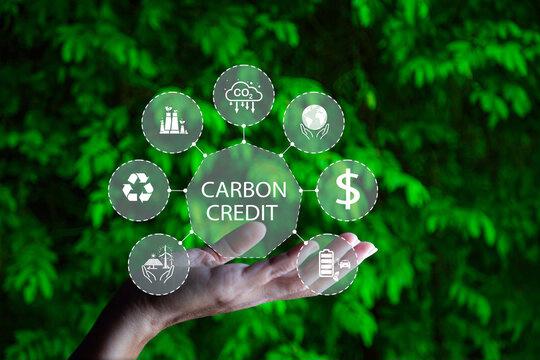Prime Minister issues directive to bolster carbon credit oversight amid climate commitments

Commitment Reinforcement post COP26. (Photo source: internet.)
Vietnam is ramping up efforts to manage carbon credits effectively in pursuit of its Nationally Determined Contributions (NDCs), following its pledge to achieve net-zero emissions by 2050.
Prime Minister Pham Minh Chinh on May 2 signed Directive No. 13/CT-TTg on May 2, 2024, emphasizing the critical role of robust carbon credit management in realizing environmental goals.
Commitment Reinforcement post COP26
At the 26th Conference of the Parties to the United Nations Framework Convention on Climate Change (COP26), Vietnam reaffirmed its commitment to reducing net emissions to zero by 2050.
This commitment necessitates concrete actions outlined in the NDCs, aligning with international agreements such as the Paris Agreement. To achieve emission reduction targets by 2030 and net-zero emissions by 2050, Vietnam recognizes the urgency of developing and implementing comprehensive plans across sectors.
The development of carbon markets and management mechanisms for carbon credits emerges as a crucial strategy. These mechanisms facilitate the efficient reduction of greenhouse gas emissions, promote the adoption of low-emission technologies, and enhance business competitiveness while preserving forests.
Although numerous businesses in Vietnam have initiated carbon credit programs since the mid-2000s, there remains a gap in understanding and implementing effective carbon market strategies.
Enhancing Carbon Credit Management
Carbon credit management involves establishing regulations for credit creation, exchange, and trading, ensuring alignment with national emission reduction targets. To fortify carbon credit management and advance market development, the directive mandates several key actions:
Ministries across sectors must urgently issue greenhouse gas mitigation plans to align with the Nationally Determined Contributions (NDC) commitments.
This issuance is targeted for the third quarter of 2024. Additionally, ministries will play a crucial role in facilitating negotiations with international partners, enabling agreements on carbon credit transfers. Assessing individual sectors’ readiness to enter the carbon market will also be a key ministerial responsibility.
The Ministry of Natural Resources and Environment will lead the research and establishment of a national registration system for carbon credits. This system is essential for managing programs, projects, and activities focused on greenhouse gas emission reduction, and will lay the foundation for piloting domestic carbon market development.
The Ministry will also spearhead the development of a regulatory framework to oversee both domestic and international carbon credit exchange activities.
Forest Carbon Credit Initiative
A priority task will be the assessment of the emission reduction and carbon absorption potential of Vietnam’s forests. This assessment, to be completed by October 31st, 2024, will guide carbon credit exchange activities with international partners.
Alongside this assessment, the development of national standards and regulations specifically for forest carbon credits is necessary. The initiative will also include pilot policies designed to drive emission reductions in rice cultivation practices.
The directive calls for coordinated efforts among ministries, agencies, and local governments to implement emission reduction goals, evaluate carbon credit potential, and communicate climate objectives effectively.
Ministries are tasked with reviewing legal frameworks, assessing international experiences, and completing the Carbon Market Development Project. Local authorities are directed to assess emission reduction activities and participate in communication programs to raise public awareness.
Vietnam’s directive underscores the nation’s commitment to combating climate change through robust carbon credit management. By aligning policies, enhancing oversight, and fostering cooperation, Vietnam aims to achieve its NDC targets while contributing to global climate action.
Through meticulous adherence to these directives, Vietnam strides confidently towards a sustainable, low-emission future.
David Tran (Source: en.economy.vn)


